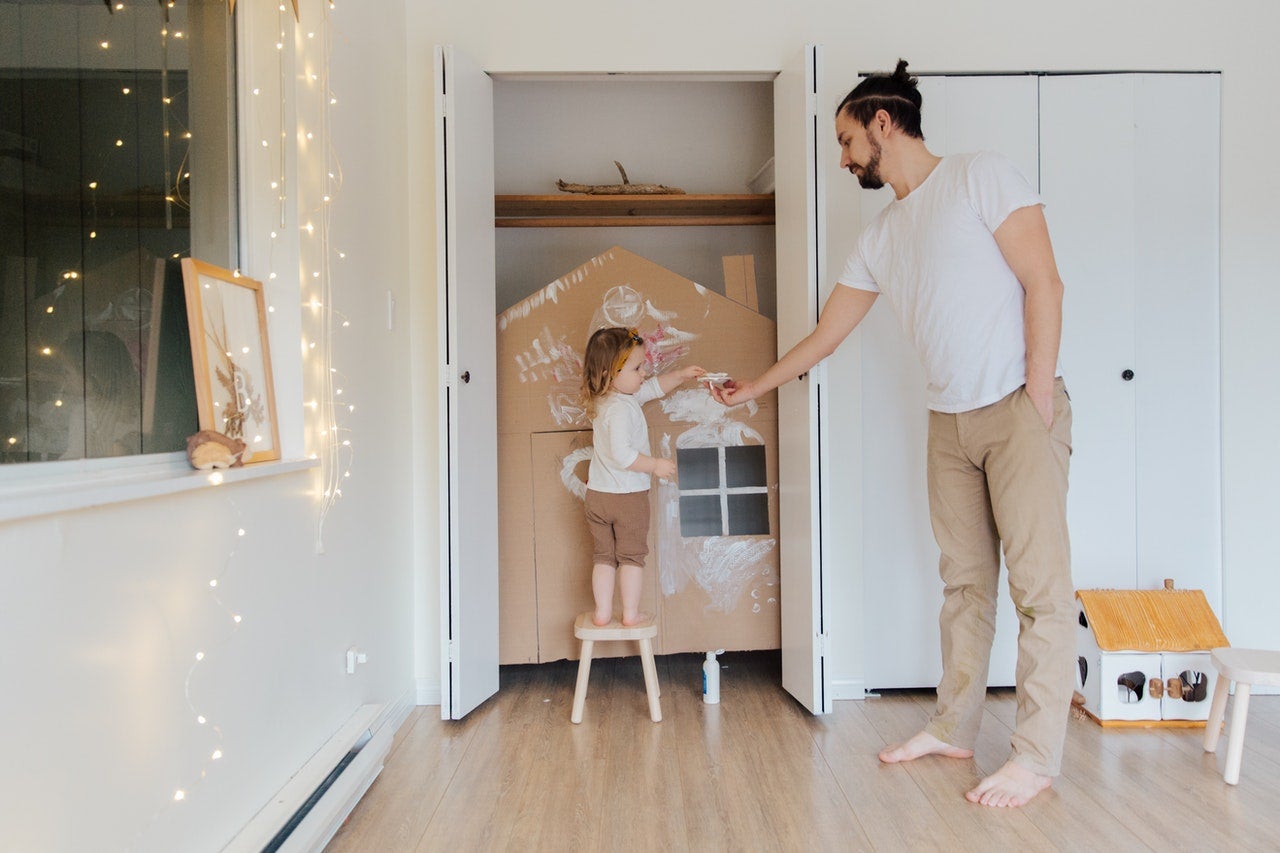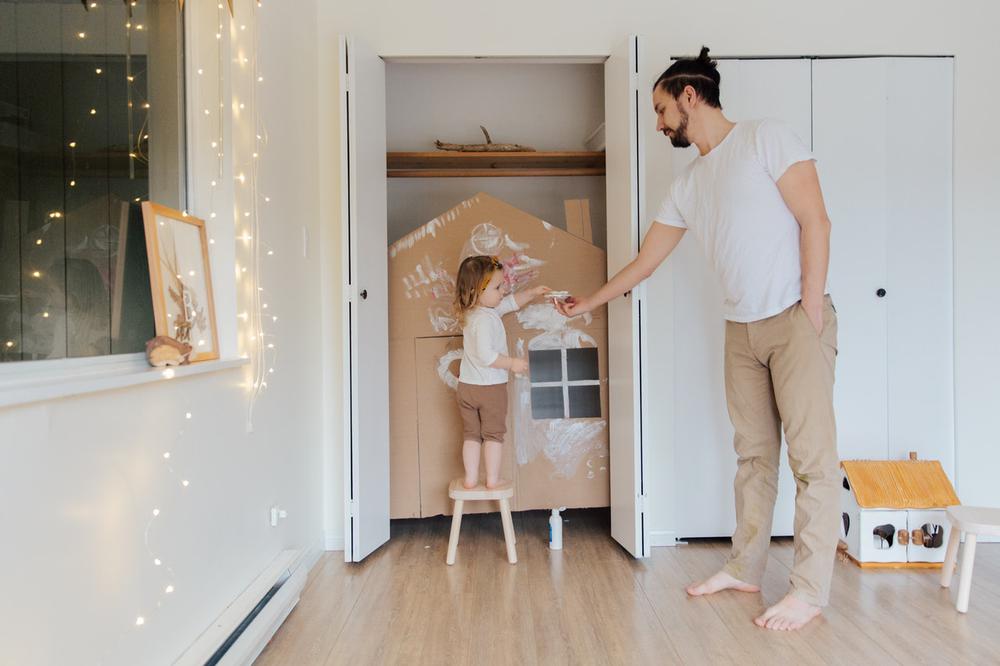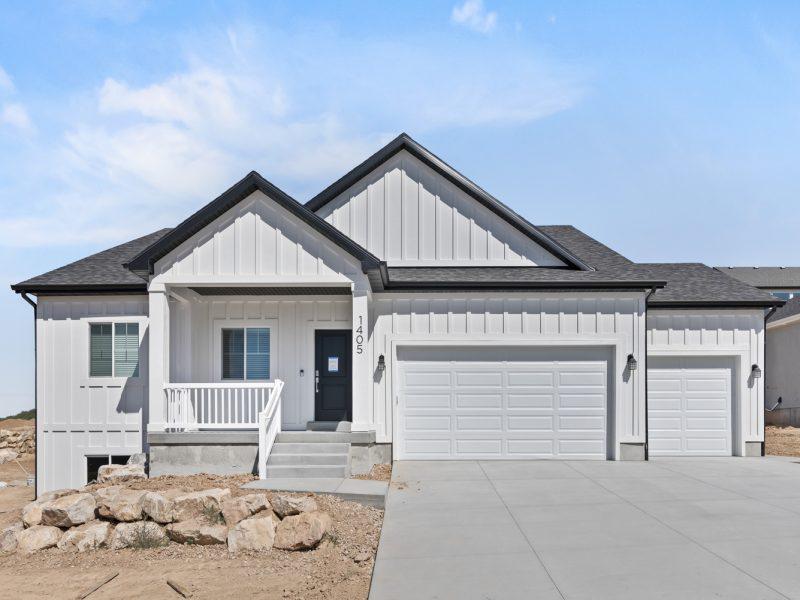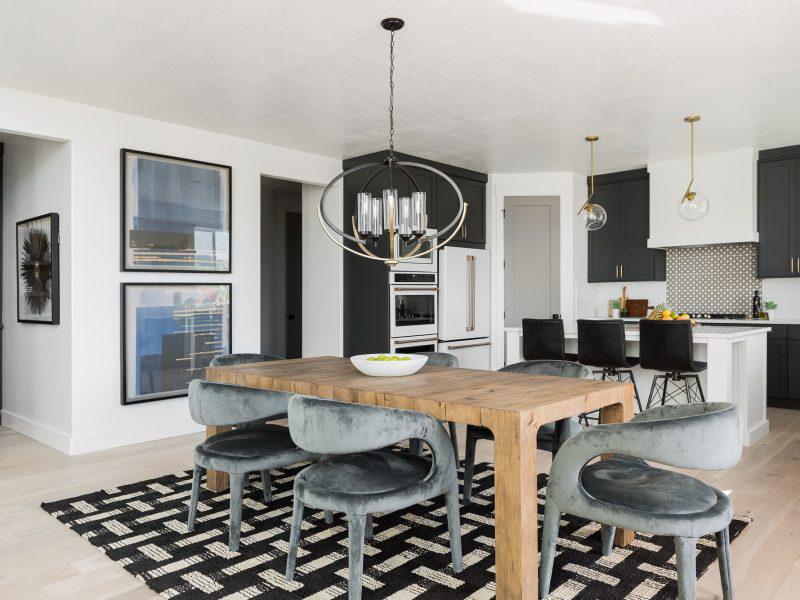

August 15, 2020
Buying a home can be a challenging and lengthy process whether it is your first or fourth time going through the process of buying a house.We are going to demystify the steps so you feel confident buying, get the most out of your purchase, and know exactly what you can expect from the home buying process itself. Here is a rundown of everything you need to consider and prepare for before you buy your home and tips to make life easier after you buy a house.
When a person is ready to take the plunge into purchasing a home there are certain steps that need to be taken to make their dream a reality. These steps ensure you are prepared financially, know what you are looking for in a home, and are able to complete the sale without issue. These steps are a brief breakdown of what to expect in the process of buying a home, we will break them down even further for you throughout this guide.
Step 1: Have a Down Payment Saved
Step 2: Get Pre-Approved or Pre-Qualified
Step 3: Decide on Location
Step 4: Decide on the Type of Residence
Step 5: Choose Professional Guidance
Step 6: Tour Properties
Step 7: Make an Offer
Steps 8: Secure the Mortgage

Buying a home is both an exciting and anxious time for first-time buyers but it can be made easier if you understand the process. By following the correct steps, tasks, and requirements along the way, first-time home buyers will enjoy special advantages created to incentivize new entrants into the real estate market.
As a first-time buyer, you have access to state programs, tax breaks, and federally backed loans if you don't have the usual minimum down payment—ideally 20% of the purchase price for a conventional loan—or you're a member of the HUD group mentioned below. Don’t worry you may still qualify as a first-time buyer even if you're not a novice.
According to theU.S. Department of Housing and Urban Development (HUD), A first-time homebuyer is an individual who meets any of the following criteria:

The first step to home ownership is to determine what your motivations to owning are and what your long-term goals look like. Are you looking to turn your wasted rent payments into something tangible and build equity through a mortgage? Perhaps you would like to finally be your own landlord and enjoy the freedoms that come with owning your own home! Maybe you are looking to start making good investments and purchasing a home is where you want to start that journey. By narrowing down your goals and motivations behind purchasing a home, your real estate agent and lending firm can help to point you in the right direction. Below are five important items to consider before you begin your home buying process.

Perform an audit of your finances before you start shopping online listings and falling in love with your dream home. It’s important to be prepared not only for the purchase of a home but the ongoing expenses of owning a home. Taking a deep dive into your finances will tell you whether you are ready to take the plunge or if you need to take a little more time to prepare yourself. Your audit should look into Spending, Savings, and Credit.
The down payment can be one of the most dreaded aspects of buying a home. One of the first steps to buying a home is to save up the money for the down payment. Unfortunately, many people have other obligations and debts that make it difficult to save the type of money that is needed. In some cases, lenders require a 20% down payment but that is not always the case. It is not always required or better to put a large down payment on a home, this choice should align with your financial goals. To receive the lowest interest rate and monthly payment it is better to put 20% down but if you want to get into a home to start building equity it may be better to start smaller between 5-10%. You might also want to make a small down payment to avoid draining your savings.
Are you aware of how much money you are currently spending every month? Review your average monthly spend and find a trend, this will help in calculating how much you can afford to allocate towards a mortgage. It’s important to account for everything — utilities, car maintenance and payments, food, entertainment, loan debt, clothing, kids' activities, retirement savings, regular savings, and any miscellaneous items.
Purchasing a house consists of considerable upfront costs composed of a down payment, closing costs and immediate work to be done making it livable. Perform a critical assessment of your savings accounts and consider accruing three to six months worth of living expenses prior to purchasing a home. Having additional money put away will help to cover the upfront costs but also allows you cushion and assurance with an emergency fund. Many lenders require that you have this fund in place.
How is your credit? When you apply for a home loan, your lender is looking for a good credit score, a debt-to-income ratio lower than 43% and a history of paying bills on time. For a conventional loan you will want to have a credit score of at least 620. But with FHA, VA, or USDA loans, you may be able to qualify with a lower score. If you want to qualify for the best interest rates on a mortgage, aim for a credit score of at least 740. Lenders these days generally prefer to limit housing expenses (principal, interest, taxes, and homeowners insurance) to about 30% of the borrowers' monthly gross income, though this figure can vary widely depending on the local real estate market.

What type of home is right for you? Residences come in many shapes and sizes depending on what your need is and what your homeownership goal looks like.
Each dwelling comes with a list of pros and cons attached depending on what you are looking for, you need to first decide which type of property is right for you. Many are attracted to the idea of a fixer-upper but be weary the initial low price tag may come with blood, sweat, money and tears attached. The ultimate goal is to find the right fit, you don’t want more than you bargained for but it is important to be fully satisfied with your purchase, after all it is a large one!

Envision your ideal home. Do you have an acre of land for your dogs and kids to run around while you sit on a wraparound porch? Or is it a brand new condo overlooking the city lights? Start with the location and what makes it special to you? Consider these two questions:
Ex. A pool, chef’s kitchen, hardwood floors, upgrades
Ex. Desired number of bedrooms, location, neighborhood, yard, garage.
Be prepared to distinguish your needs from your wants so that you can be confident about which homes will truly suit you when the time comes to make an offer. It is good to retain some flexibility in your list, remembering that the wants can be added after the purchase with additional budget but don’t waiver too much. A home is a large purchase and you should be satisfied with what you are getting for your budget!

Prior to your search for your new home, it’s important to get an idea of how much home you can afford based on lender qualifications. Let’s say you’ve done the math and think you could afford a $450,000 home, but based on factors like current debt ratios, monthly income, and employment history a lender only sees you value at $350,000. In addition, realtors and home builders will be less likely to spend time with clients who have not clarified how much they can afford to spend.
The best way to improve your chances of closing your ideal home without any hiccups is by getting pre-approved for a loan before placing the offer. Getting a mortgage pre-approval will qualify you with realtors, sellers, and home builders making the buying process much smoother. This can be done by applying for a mortgage and completing the necessary paperwork. It is beneficial to shop around for a lender and to compare interest rates and fees using a tool like a mortgage calculator or internet searches.
It is also a possibility that a bank will give you a loan for more house than you want to pay for. Just because a bank offers to lend you $500,000 does not mean you should actually borrow that much. Oftentimes first-time home buyers make this mistake and end up “house-poor" with little left after they make their monthly mortgage payment to cover other costs, such as utilities, vacations, entertainment, clothes or even groceries. When determining the loan amount you need you will want to look at the home’s total cost, not just the monthly payment amount. Property taxes, homeowners insurance, maintenance or improvement costs and closing costs are all items that shouldn’t be overlooked!

Once you know your home necessities, budget, and type of residence your next step will be to find some guidance to support your journey. Whether working directly with a home builder or finding the right real estate agent, you will want someone you trust to meet your needs and price range. After finding the right home, real estate professionals can assist you in negotiating the purchase, making an offer, getting a loan, completing paperwork. An added benefit to working with a home builder is the design options that come along with purchasing a new home from floor plans and flooring options to paint and counter tops. A good real estate agent's expertise can protect you from any pitfalls you might encounter during the process. Most agents receive a commission, paid from the seller's proceeds.
Now that you have decided to buy and have begun taking the actions to do so, let's dive into what you should expect. This can be a chaotic time with offers, counter-offers, paperwork and a multitude of decisions but with preparation and knowledge of what to expect, the process doesn't have to take your sanity!

There are a variety of ways to search for homes nowadays, make sure you take advantage of all the options available to you. By using your real estate agent, searching online listings, and driving around desired neighborhoods you will get a good feel for what is on the market. Put some feelers out with your friends, family, and business contacts, too. You never know where a good reference or lead on a home might come from. Once you have decided you are all in on buying a home, don’t walk into an open house with a game plan! Have your real estate agent’s name ready or someone you would like to work with, it is in your best interest to be prepared with your own agent prior to getting involved with a seller's agent.
On a budget? That doesn’t have to hinder your search! Look for homes whose potential has not been realized yet. You may not be able to afford to replace the hideous tile right away but in time you can start making the changes you want that make it home. Don’t make exceptions past a point of livability for something you can afford, keep looking for something you can make your home without sacrificing. If the home meets your needs in terms location and size, don't let physical imperfections turn you away. First-time home buyers should look for a house they can add value to, as this ensures a bump in equity to help them up the property ladder.
First-time home buyers are in a great position with a wide variety of options when itcomes to purchasing their first home. Aside from the financing options for first-time home buyers or novices there are programs for repeat buyers and a variety of other qualifying factors. Do your research, speak multiple lenders, and ask trusted sources what options are out there. Financing options will vary by state, here is a resource to get you started with theHUD’s resource list.
Shop around with financial lenders when searching for a mortgage or pre-approval, don’t feel like you are bound to your current financial institution. Fees can be surprisingly varied. Take an FHA loan, the fees may vary depending on whether you are applying for the loan through a credit union, mortgage banker, large bank, local bank, or a mortgage broker. Another financial item that varies are mortgage interest rates, which have a major impact on the total price you pay for your home. Once you've chosen a lender and applied, the lender will verify the financial information provided (credit scores, verifying employment, calculating debt-to-income, etc.). The lender will then pre-approve you for a certain amount. If your credit score is to change due to a newly accrued debt, your loan can fall through at the last minute. Be wise with your spending and stay on the path to landing your new home!

When it comes time to make an offer, your real estate agent will help decide how muchto offer and any conditions attached to the offer. Your agent will then present the offer to the seller's agent; the seller will either accept your offer or issue a counteroffer. At this point in time you can accept or continue to go back and forth until you either reach a suitable price or pass altogether. After reaching an agreement, you will make a good-faith deposit and transition into escrow. After entering escrow (typically 30 days), the seller will take the house off the market with the contractual expectation that you will buy it—provided you don't find any serious problems with it during inspection.
It’s incredibly important to have a trained professional perform a home inspection of the property for quality, safety and overall condition of the potential home. Even if the home appears perfect, you may uncover unexpected repairs or a possible money pit you weren’t prepared for during the inspection. If the inspection report reveals serious issues the seller did not close you have the opportunity to rescind your offer and get your good-faith deposit back. If your heart is still set on the home, you can negotiate to have the seller discount the price or make the repairs.

If the inspection comes out clean or you are able to work out an agreement with the seller you will be ready to close. Closing on a home will feel like a whirlwind of paperwork and signatures in a very short time period, while praying that nothing falls through at the last minute. There are more financial items that come with closing on a home; home appraisal, a title search, obtaining private mortgage insurance or a piggyback loan if needed, and completing the mortgage paperwork. Other than those closing costs be prepared for loan-origination fees, title insurance, surveys, taxes, and credit-report charges.
 Now that you have crossed the t’s and dotted the i’s you are ready to move into your new place and are done with the process! Well not completely, owning a new home extends past the down payment and your monthly mortgage payments. We have put together some final tips to make life as a new homeowner secure and enjoyable!
Now that you have crossed the t’s and dotted the i’s you are ready to move into your new place and are done with the process! Well not completely, owning a new home extends past the down payment and your monthly mortgage payments. We have put together some final tips to make life as a new homeowner secure and enjoyable!
You have invested a lot of money into your new home, to keep return on investment and pride in your home you will want to make sure to take care of it. Performing regular maintenance can decrease repair costs by finding problems while they are small and manageable.
Owning a home means you are responsible for all of the upkeep, if you need a new water heater or the pipes burst it is on you to replace them! By having an emergency fund in place for unexpected home situations, you can be prepared mentally and to an extent financially.

You officially have your own sanctuary, now it is time to get comfortable and make it a home! Whether that means changing the paint colors in the bedroom to match each member of the household's personality orpicking the perfect flooring, you have the freedom to make it yours! If you decide to go with a Visionary Home, we have an entire Design Studio at your disposal for ideas, inspiration or to bring your dream home to life!

We hope this guide will help put you on the right path to becoming a homeowner while removing the mystery and intimidating factors of the process. The more knowledge you have on the process beforehand, the less stress and anxiety you will face during the process. Educating yourself on what you expect out of a home, your finances and the budget you have going in will give you the confidence to navigate this major step in your life.
If you have questions about the home buying process, purchasing a new home, going through the build process or design tips our experts are here to help. Visionary Homes is dedicated to finding the right home for our clients based on their needs, wants, and budgets. Ready to get started on your home journey? Give us a call at (435) 228-4702.
The post The Process of Buying A House appeared first on Visionary Homes.